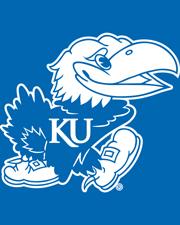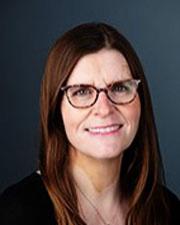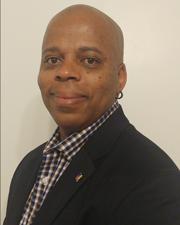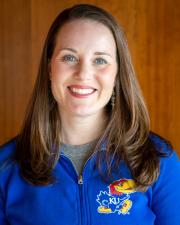MSW Practicum Education

Overview
Field practicum provides each student with real world experience.
The Practicum Education Office works with community agencies throughout Kansas and Missouri to provide field practicum opportunities for students.
Students are placed in these agencies through a collaborative process among the field education office, the student and the agency. The Practicum Education Office works closely with students and agencies to secure enriching practicum experience that provides the appropriate learning opportunities for students and qualified field instructor available for the student.
The Practicum Education Office arranges all placements. Students should not contact agencies directly to plan for practicum placement without explicit authorization from the Practicum Education Office. Every effort is made to locate a placement within a one-hour drive from the student's home. Students are responsible for transportation to the assigned practicum. Most agencies also require a student to have transportation available for agency assignments.
Students participate directly in planning for practicum by completing the online planning survey and submitting it to the Practicum Education Office by the due dates listed in the admissions information and the planning calendars in the Field Education Handbook. If practicum planning information is not provided in a timely manner, placement will be delayed until the next planning cycle. This is likely to result in a delayed graduation date. The Practicum Education Office will consider student interests in fields of practice, client populations, and social problems in matching a student with a practicum agency.
An orientation is held in the fall, before the beginning of classes, for all students entering a practicum and the field liaisons who represent the school. Students are responsible for the material in the Field Education Handbook. Upon request, a printed copy may be obtained through the KU Bookstore for a fee.
Every student in practicum has both a field instructor and a field liaison. The field instructor is a BSW or MSW graduate with two or more years of social work experience and is typically an employee in the practicum agency where the student is assigned. The field instructor is responsible for providing supervision, overseeing the student’s learning opportunities, and planning practicum assignments. The field liaison is employed by the School of Social Welfare to work with field instructors and students in each agency, to help integrate practicum with class instruction, to evaluate student performance, and to assist if difficulties arise.
Because of the necessity for continuity in client service and learning, the maximum time for a break between semesters in practicum is three weeks, regardless of time allowable according to the University calendar.
Traditional MSW Practicum
Traditional MSW students have two practicum placements, one during the generalist year (first year) and one during the specialization year (second year).
Each placement is for two consecutive semesters, 14 credit hours a year. During the first year, students will spend 16 clock hours a week for a total of 416 hours at their field practicum (from the end of August through April). During the specialization year, students will spend 16 clock hours a week for a total of 512 hours at their field practicum (from the end of August through April). In both years, the practicum is concurrent with required practice courses.
Practicum is graded on an S/U basis. A satisfactory (S) grade in both the foundation and advanced level practicum is a requirement for the MSW degree. At the end of the first semester, a grade of P is given for satisfactory progress toward completion of the course. No credit is given for partial completion (fewer than 14 credit hours) of either practicum.
Generalist Year
The generalist year practicum provides the necessary learning opportunities for the achievement of the generalist curriculum objectives and the development of a generalist perspective on practice. Typical agency settings for the generalist year include community mental health centers, child welfare offices, long-term care facilities, and juvenile justice and/or corrections settings.
Specialization Year
The specialization year practicum provides the learning opportunities essential for completing the objectives of either the clinical or macro specializations.
Clinical specialization practica are linked to integrative seminars in the following fields of practice, children and families, health/mental health, or aging. Typical settings for clinical MSW students include mental and behavioral health centers, hospitals, hospice programs, schools and family resource programs.
The macro practicum provides more in-depth experience in program development, outcome evaluation, policy analysis, personnel issues and budgeting/grant-writing. Students are placed in agencies of all sizes to learn managerial and advocacy skills. Typical settings range from small nonprofit agencies to state, regional and federal organizations.
Advanced Standing MSW Practicum
Advanced Standing MSW students have one practicum placement, which lasts for two consecutive semesters or 14 credit hours for the year. The advanced level practicum requires 16 clock hours a week over two semesters for 512 hours at their field practicum (from the end of August through April). The practicum is concurrent with required practice courses. Practicum is graded on an S/U basis. A satisfactory (S) grade is a requirement for the M.S.W. degree. At the end of the first semester, a grade of P is given for satisfactory progress toward completion of the course. No credit is given for partial completion (fewer than 14 credit hours) of either practicum.
Clinical Specialization
The clinical practicum provides more in-depth direct practice experience with individuals, families, and groups. Students in the clinical specialization commit to one of the following fields of practice:
- Children and families (with a focus on school social work available)
- Health/Mental Health (including social work in health care and mental health)
- Aging
Typical settings for clinical level MSW students include mental and behavioral health centers, hospitals, hospice programs, schools and family resource programs.
Macro Specialization
The macro specialization practicum provides more in-depth experience in program development, outcome evaluation, policy analysis, personnel issues and budgeting/grant-writing. Students are placed in agencies of all sizes to learn managerial and advocacy skills. Typical settings range from small nonprofit agencies to state, regional and federal organizations.








